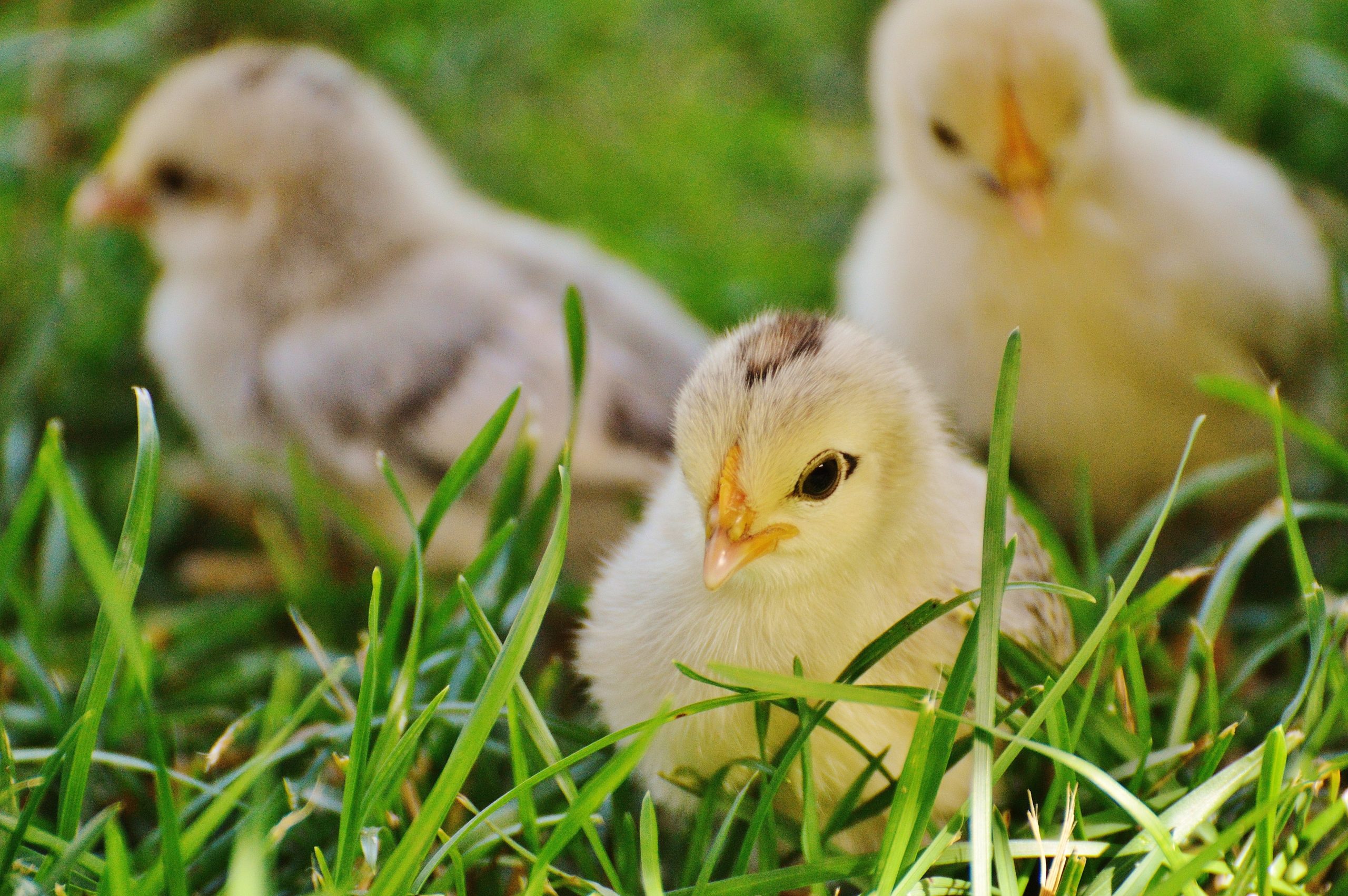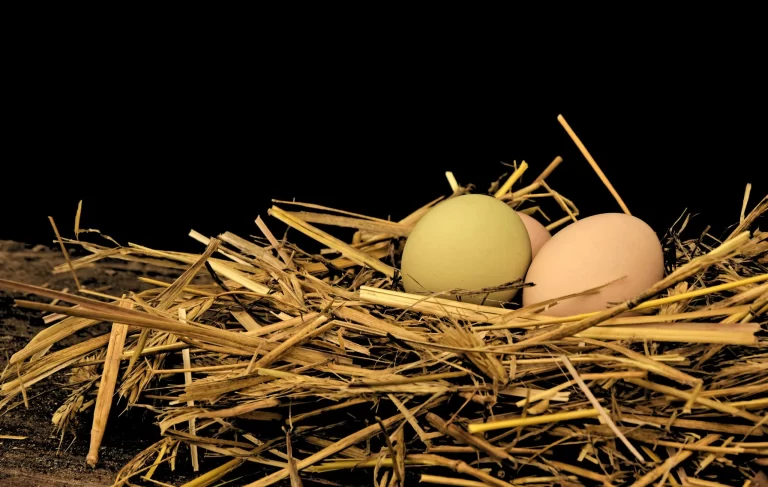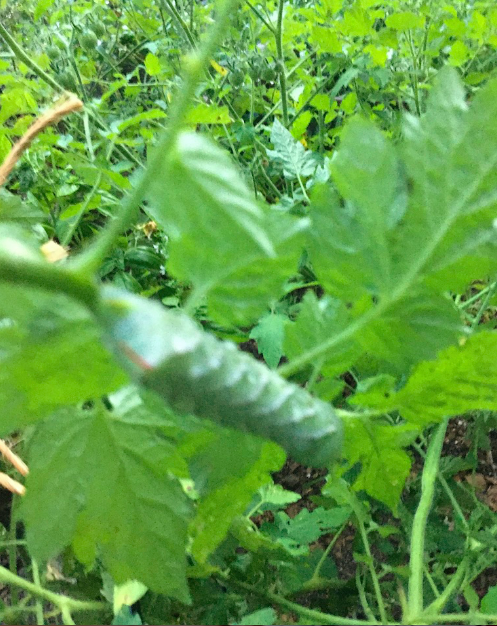Raising chickens: My feathered girls and the occasional boy
(This post may contain affiliate links. See the full affiliate disclosure here for more info.)
Getting started raising chickens
We’ve raised chickens several times. The first time was when we moved into our house in the 1980s, and since it came with a chicken coop, my husband ordered 24 layers and 24 broilers. That started our on-again-off-again journey into raising chickens. Talk about trial by fire…
After quite a hiatus, we were given a small utility tractor on wheels and turned it into a chicken house, sort of a chicken tractor, although we haven’t moved it. We put an enclosure and a sliding door into the coop so the birds have a “play yard” for times when I don’t want them free-ranging.
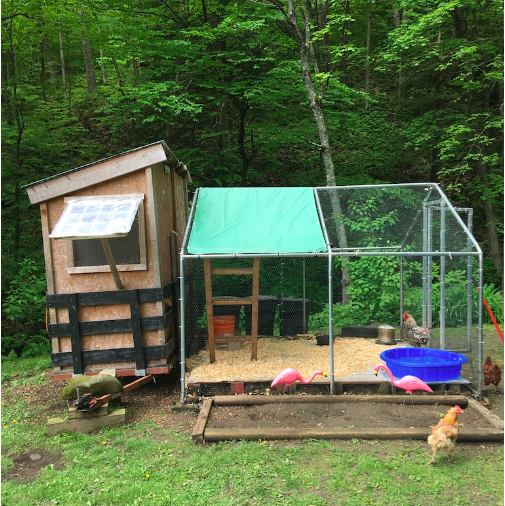
I know chickens can run around in the snow, but we cover the play yard enclosure in the winter, let the birds out to “air out” during the day, and put them securely in the coop at night.
If you don’t want to build a chicken coop yourself or want to be sure your chickens will be safe without learning the hard way, take a look at the chicken coops here.
The best tips I learned for raising chickens
I learned two invaluable tips from another chicken keeper. One was to feed and water the birds outdoors. We do that in the play yard, even in winter. Chickens are very messy eaters and drinkers. This keeps that part of the mess outside and keeps the chicken coop drier.
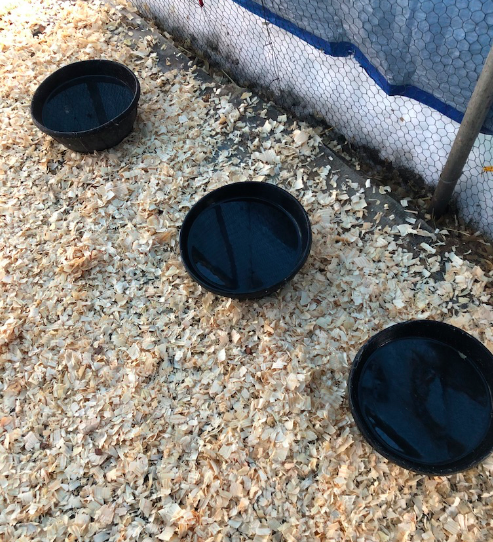
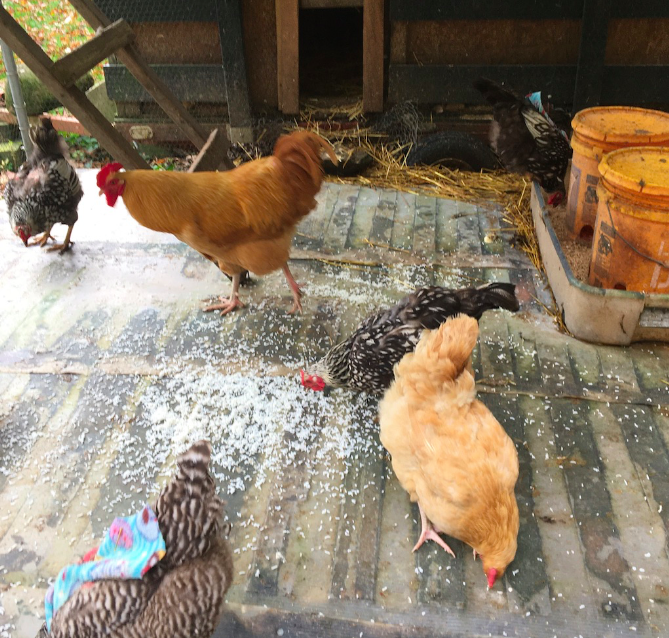
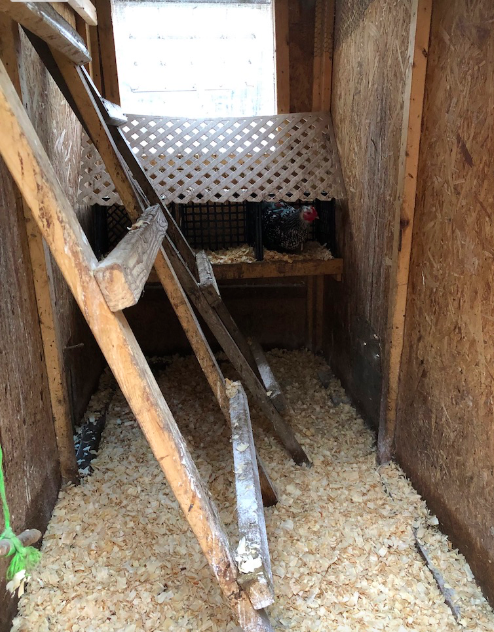
The second tip was to use the deep litter method. You’ll need to cover the floor of the coop to keep the smell and droppings somewhat under control. People generally use sand, sawdust, or wood shavings.
We use wood shavings at the bottom of the coop because they are always available. To catch the droppings from nightly roosting, we keep a low plastic bin on wheels (I think it’s supposed to store sweaters under your bed!) under the roost that is easy to empty. We add agricultural-grade lime and shavings to the coop and bin as needed.
During the good-weather months, we shovel out the coop every month, but in winter, we use the deep litter method and clean it out after 3-4 months. All that poop and shavings? It goes straight into the compost pile to ripen until it goes into the garden.
Want to learn how to make your own stash of gold (AKA compost)? Making your own compost is easy and free.
Keeping predators out of the chicken coop
We’ve learned a lot in the 5 years or so that we’ve raised chickens and ducks and from the times we had to start over because of predators.
Chicken food, cat food, and human food waste outdoors (like compost and garbage) attract chicken predators looking for an easy dinner.
Previously, we had vents at the rafters for air circulation. I’m not sure why we thought predators wouldn’t use those openings as doors. Now, we’ve covered them with layers of rugged screen and chicken wire. The air still gets in, but the raccoons, weasels, and foxes have not. So far.
The chickens have been safe in Fort Knox. But I just read a post about a woman who lost some hens to a hawk while they were free-ranging. So, I know our arrangement isn’t bulletproof.
I think we’ve done a good job keeping raccoons, weasels, and foxes at bay. And I’ve learned that each predator claims and leaves their prey differently. It’s a small consolation, but it helps to know what you’re dealing with.
Raccoons are attracted to food outdoors. They are scavengers with very adept hands. They do not have opposable thumbs (as most of us have always thought) but have an exquisite sense of touch. They can open covers, doors, and some other barriers you think might be impenetrable.
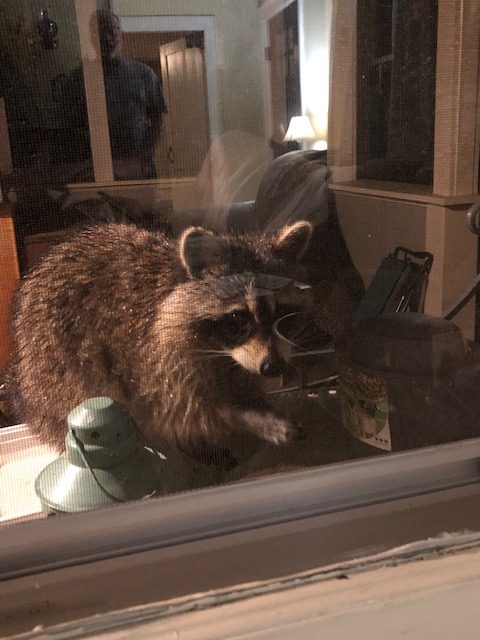
Raccoons are adorable, but you don’t want them near the coop. A raccoon will eviscerate a bird. That’s a fancy word for tearing the guts out. Unfortunately, we’ve had that happen.
We had one fit through a small opening, kill several birds, and try to pull a dead one back out through the opening. Apparently, the raccoon got out, but the poor eviscerated rooster was stuck in the opening.
The weasel that got into the hen house killed them quickly (apparently, they drank some blood) and left the dead birds in a neat pile.
But predators may still visit…
Then, there was the day our neighbors called to say a bear was headed our way.
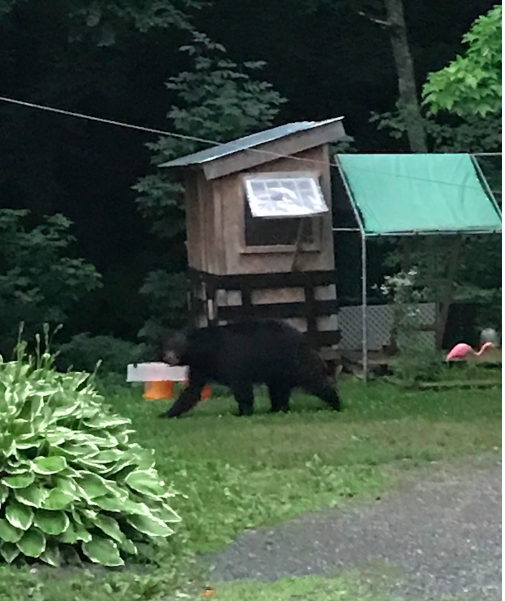
Thankfully, the birds were already safe in their coop for the night. He didn’t really even try to get in—although I’m sure he could have ripped a hole in the play yard walls—and eventually just nosed around, then headed down the road, maybe in search of fish in the brook.
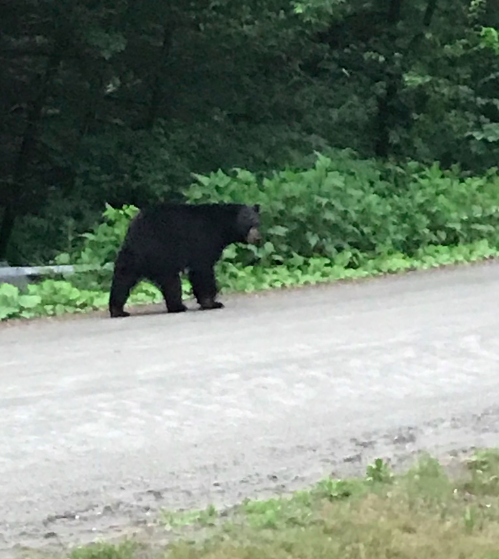
Do you have some “best tips” for raising chickens that maybe you learned the hard way as I did? Please share them in the comments, and I’ll be sure to share them with our readers.
If you have a problem with raw skin on your hens or roosters, try the advice here.


